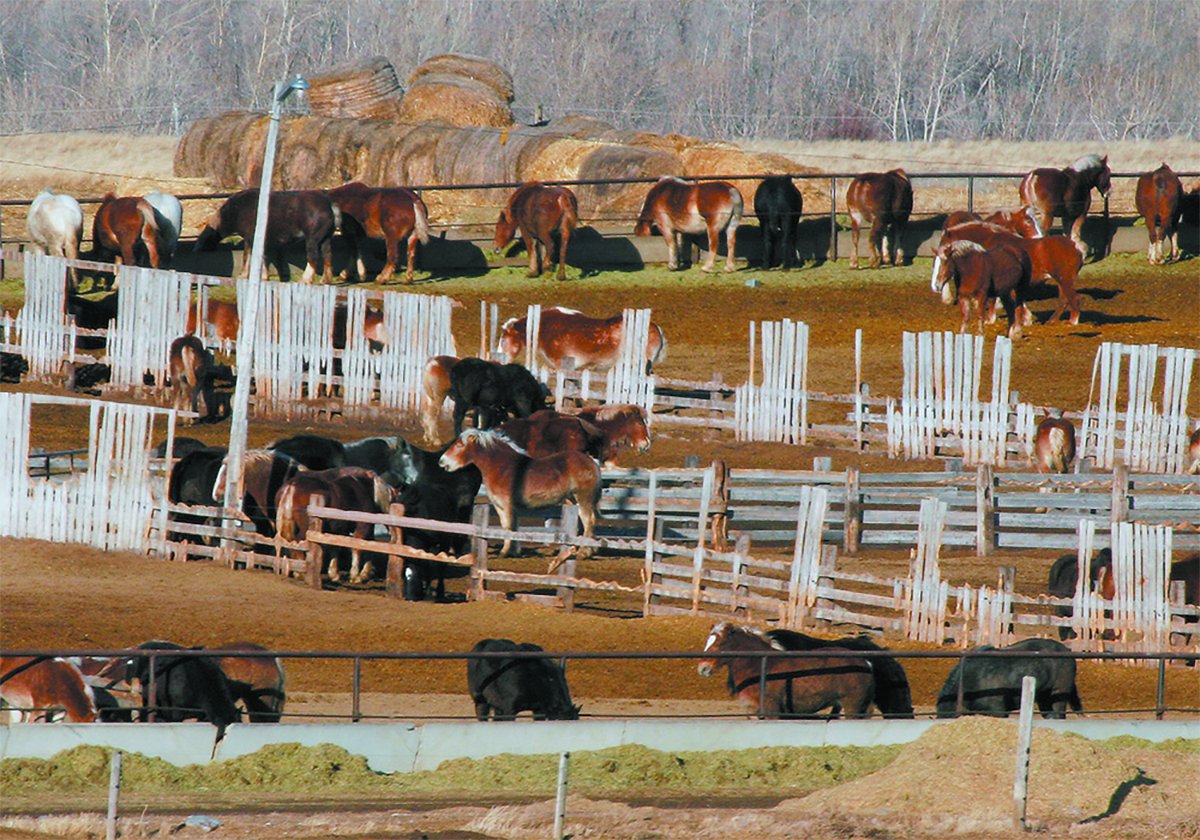West Nile virus killed hundreds of horses in Manitoba in 2002.
Since then, the number of cases in the province has dropped, and last year only five horses died from the virus, said Ken Johnson, a veterinarian in Oak Bluff, Man., and past-president of the Western Canadian Equine Association.
“We have seen fewer clinical cases of West Nile virus in the province over the last few years … because the vast majority of horses are vaccinated.”
In 2002, when West Nile virus was first detected in Manitoba, 236 horse fatalities were reported, he said. If non-reported fatalities were included, the virus probably killed more than 450 horses that year.
Read Also

Canada’s slaughter horse industry lacks transparency
The lack of clear reporting and public access to data keeps the industry largely hidden, leaving questions about humane treatment and traceability unanswered.
Johnson said 95 percent of the province’s horses are now vaccinated.
“The clinical cases that we have seen are in non-vaccinated horses, which are very few.”
West Nile is a disorder of the central system that is deadly for horses. More than 35 percent of infected animals will die, and horses that do recover frequently have permanent neurological damage.
Corvids, like crows and magpies, are the primary reservoir of the virus, and mosquitoes spread the disease from corvids to other species. Horses are a dead end host for the virus, which means it does not spread from horse to horse, according to a Manitoba Agriculture fact sheet.
The virus is generally less prevalent west of Manitoba. British Columbia is the only province where it has never been detected.
Even though it has been a dry spring in many parts of Saskatchewan, that doesn’t mean the threat of mosquitoes and West Nile should be ignored, said Curt Hagele, registrar of the Saskatchewan Veterinary Medical Association.
“It’s reasonable that owners of horses … give serious consideration to vaccinating these animals again this year for West Nile virus,” he said. “It’s becoming more commonplace (to vaccinate).”
There were no reported cases of the virus in horses in Alberta last year, after 46 cases in 2007 and nine in 2006. However, the absence of the disease in 2008 may be the result of fewer mosquitoes rather than the absence of the virus, said Duane Landals, registrar of the Alberta Veterinary Medical Association.
“If we get the right environment, the right number of mosquitoes, the right type of mosquitoes, then you could have a huge outbreak,” Landals said.
“Then of course, it’s too late to start vaccinating your horse.”
An animal health technologist at a practice in Red Deer, who preferred to remain anonymous, said it’s hard to estimate how many owners vaccinate their horses. Most of the owners who come to the Red Deer clinic vaccinate for West Nile.
The employee said horse owners shouldn’t become complacent just because there were no cases of West Nile in Alberta last year.
“Now people are starting to think, maybe we won’t have to vaccinate because there aren’t any cases …. It’s a lot cheaper to pay, say $35, for a West Nile vaccine once a year, opposed to treating your horse for West Nile virus.”

















